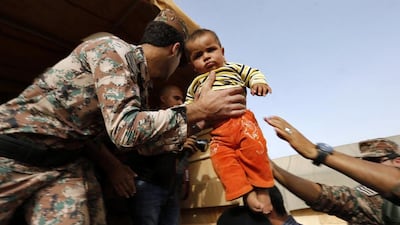Ministers from around the globe are gathering in Brussels for the “Supporting the future of Syria and the region” conference. They will discuss a political solution to the Syrian conflict and follow up on humanitarian pledges made previously. While indeed the focus should be on ending the protracted conflict, those present should also give serious attention to enhancing the economic independence of the many displaced people. In doing so, they should not shun innovative pathways.
This week’s conference is the sequel to a conference held in London in February 2016. At the London conference, promises included more humanitarian aid, increased funding and refugee resettlement options. Refugee-hosting countries in the region – Jordan in particular, but also Turkey – vowed to increase legal employment options for refugees.
This willingness to grant refugees the right to work indicated a courageous shift in policy. For many years, the approach had a “temporary and humanitarian” character. Now, governments are experimenting with “(semi)-permanent and developmental” policy options. The reasons behind this shift are several and include a general acknowledgement that the current approach is financially unsustainable.
Policy changes in Jordan and Turkey illustrate the shift in thinking. Both countries have stepped up efforts to enable the integration of refugees into their respective labour markets. They modified legal frameworks, worked to overcome bureaucratic obstacles and closed information gaps. As a result, development agencies and civil society organisations are increasingly focusing on refugee employment initiatives.
International donors can encourage solutions in the region by supporting these host governments with their laudable efforts to increase refugees’ economic independence. Many international initiatives already do exactly this, including a European Union-Jordan trade deal that links the benefits for companies to refugee quotas in their workforce. At the same time, several international companies have created vacancies for refugees and there is a general increase in “education for employment” programmes aimed at equipping refugees with marketable skills.
Despite all the efforts to overcome legal and other barriers, the major issue remains: a lack of jobs. In effect, there is an urgent need for serious, scalable job creation in the region. Indeed, the biggest refugee-hosting countries also cope with significant domestic unemployment. And while some job creation is taking place within local economies, the pace is too slow and the red tape in some cases too thick to get sufficient large-scale international investments.
Discussions about job creation in the region often stop here. But perhaps, to find an actual solution, we need to broaden our perspective to a new way of thinking about “local” employment. Technology has already transformed the way we work. The global labour market shows a persistent lack of specialised skills. Many of these internationally sought-after jobs can be done remotely – from accounting to social media marketing to software development to Arabic translations.
A refugee in Amman could do translations for a company in London, someone in Beirut could do data entry for a company in Dubai, while someone in Istanbul could do coding for a company in Silicon Valley. Employment can be project-based, through the cloud, with payments through a secure online system. The ability to rate and be rated could build an individual and a company’s credibility and trustworthiness.
Sure, a remote, digitally empowered solution will not be available for all those displaced. But it could help those tech-savvy, ambitious youth whose lives have been on hold for the past six years and who might grow more desperate by the day. Many will point at the fact that even the youth does not have such marketable skills. Here, we could bring in the idea of revolutionary education models such as “boot-camp learning”. That model is proving very successful in graduating highly employable individuals in a very short period.
We believe this imaginary model can be made into a realistic, win-win situation for donors, local governments, companies and the displaced alike. What is needed is the political will to create the right legal framework, a solid business case for international companies and a good number of boot camp training programs for specialist skills on demand. If executed well, companies save money, donors get the desired “solutions in the region” and the displaced (and potentially others) are gainfully employed.
The gathering in Brussels brings together political leaders, international donors, NGOs and businesses. With so many solution-driven minds in the room, it would be an excellent opportunity to advocate for a new narrative in which global opportunities can reach the locally displaced.
Dr Saskia van Genugten is a senior research fellow at the Emirates Diplomatic Academy.
Lorraine Charles is an associate at Angela M Solomon Communications

